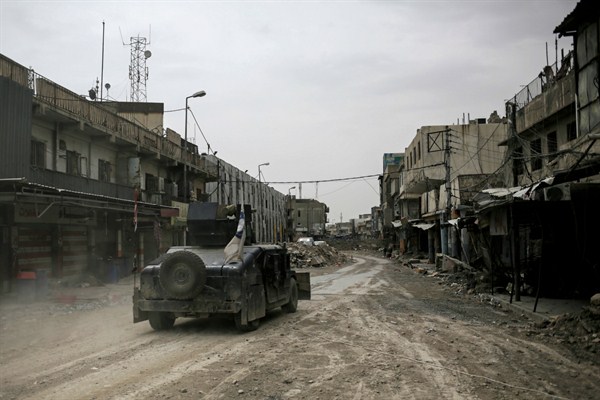As the Iraqi army comes closer to fully reconquering Mosul from the self-proclaimed Islamic State, questions are emerging about the future of relations between two of Iraq’s neighbors, Turkey and Iran. Will the quest for influence in Iraq’s Sunni heartland lead to greater turbulence between Ankara and Tehran? Are they, as some warn, on an unavoidable collision course in Iraq?
Turkey is worried that gains made by Iraq’s Shiite-majority government, which is friendly with Iran, only serve to expand Tehran’s influence over Sunni areas in northern Iraq. More worrying for Turkish President Recep Tayipp Erdogan is the potential for a pro-Iranian axis just over the border in northern Iraq that includes elements of the Kurdistan Workers’ Party, or PKK. Pro-Iranian militias in the Sinjar region are said to be working closely with pro-PKK Kurdish forces, as well as Yazidi militias in the area. Iran’s newest envoy to Baghdad, Iraj Masjedi, a former senior official of the elite Quds Force, is likely to raise consternation in Ankara, since Masjedi is reported to have excellent relations with a variety of Iraqi Kurdish groups.
This partly explains why the anti-Iranian rhetoric coming from Ankara has been turned up several notches in recent months. In reference to what Mosul and its environs would look like after being liberated from the Islamic State, Erdogan vowed that he would not turn a blind eye to his Turkmen “kin” and “Sunni brothers” there. For good measure, he accused Iran of seeking to turn Iraq and Syria into Shiite states. Last month, Erdogan referred to the pro-government Iraqi militias or Popular Mobilization Units, also known as al-Hashd al-Shaabi, as a “terrorist organization.” Erdogan has coupled this message with irredentist claims to northern Iraq and Syria going back to the early 20th century—areas he seems to view as Turkey’s natural sphere of influence.

